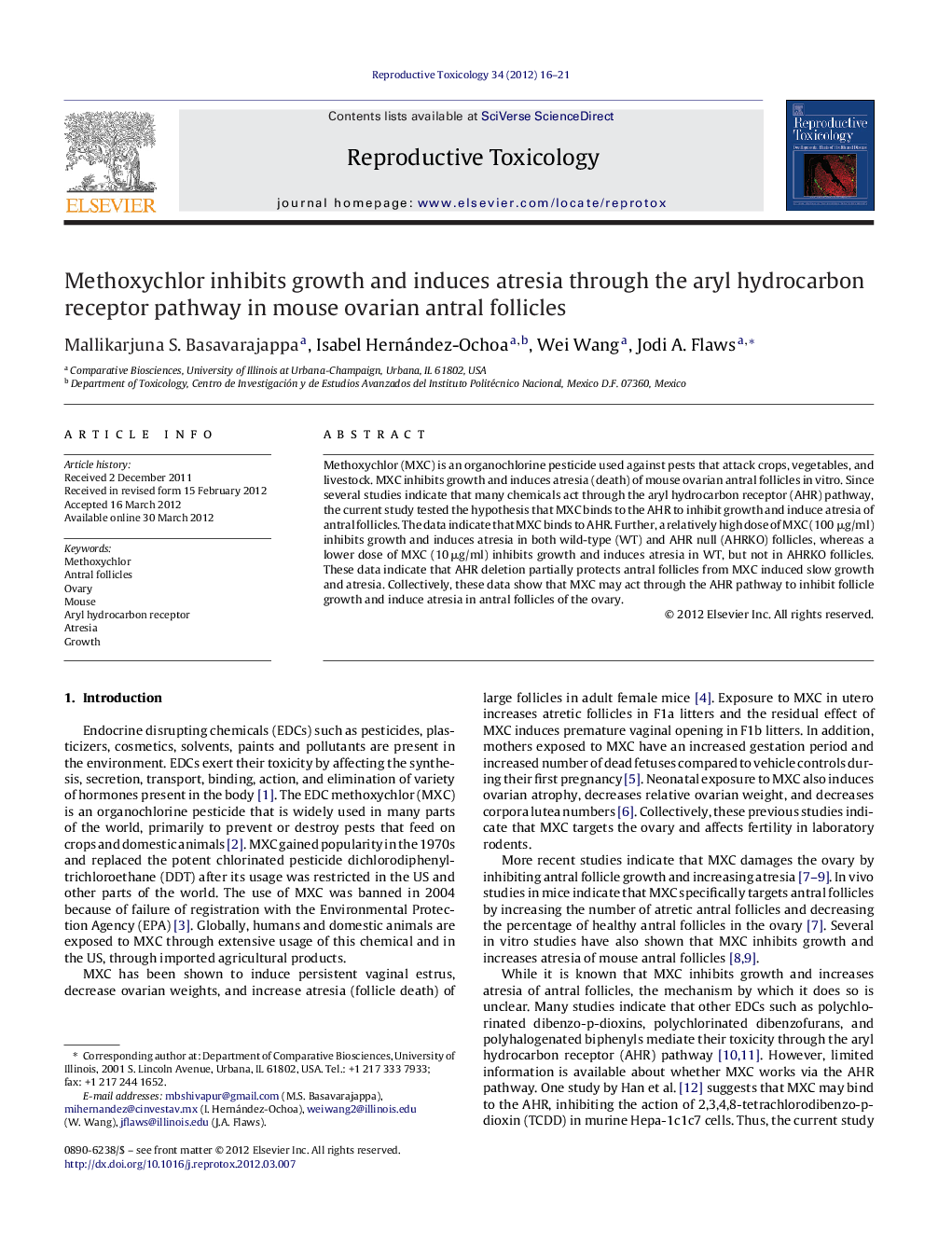| کد مقاله | کد نشریه | سال انتشار | مقاله انگلیسی | نسخه تمام متن |
|---|---|---|---|---|
| 2593748 | 1132248 | 2012 | 6 صفحه PDF | دانلود رایگان |

Methoxychlor (MXC) is an organochlorine pesticide used against pests that attack crops, vegetables, and livestock. MXC inhibits growth and induces atresia (death) of mouse ovarian antral follicles in vitro. Since several studies indicate that many chemicals act through the aryl hydrocarbon receptor (AHR) pathway, the current study tested the hypothesis that MXC binds to the AHR to inhibit growth and induce atresia of antral follicles. The data indicate that MXC binds to AHR. Further, a relatively high dose of MXC (100 μg/ml) inhibits growth and induces atresia in both wild-type (WT) and AHR null (AHRKO) follicles, whereas a lower dose of MXC (10 μg/ml) inhibits growth and induces atresia in WT, but not in AHRKO follicles. These data indicate that AHR deletion partially protects antral follicles from MXC induced slow growth and atresia. Collectively, these data show that MXC may act through the AHR pathway to inhibit follicle growth and induce atresia in antral follicles of the ovary.
► Methoxychlor (MXC; 10 and 100 μg/ml) binds to aryl hydrocarbon receptor (AHR) in mouse ovarian cells.
► MXC (10 μg/ml) inhibits growth and induces atresia through the AHR pathway in mouse ovarian antral follicles.
► The effects of MXC on sex steroid hormone levels may not be mediated by the AHR pathway.
Journal: Reproductive Toxicology - Volume 34, Issue 1, August 2012, Pages 16–21